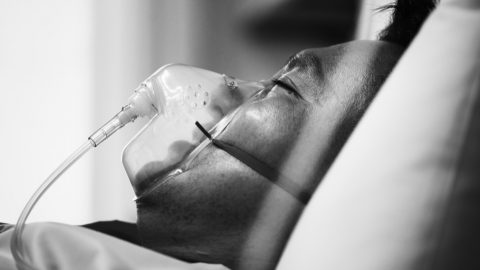Some protection and indemnity clubs in the Far East have drawn up their own lists of approved shipboard security providers, in response to escalating requests from shipowners for guidance in deploying armed guards, according to industry sources in Hong Kong.
While the London-based International Group of P&I Clubs insisted today that there was no centrally held whitelist, secretary Andrew Bardot confirmed that his organisation was examining wider issues of accreditation and standards in this highly sensitive area.
Meetings have taken place with the newly-formed Security Association of the Maritime Industries, which aims to introduce some form of benchmarking scheme, he added.
Sources at two UK-based P&I clubs in Hong Kong told Lloyd’s List that their firms do employ whitelists, and maritime lawyers and an official at the Hong Kong Marine Department both revealed that they are widely in use locally.
Insurers said they have adopted the practice as a means to avoid ruinous claims that could arise from a mishap in the discharge of deadly force by inexperienced or incompetent guards.
A number of owners have recently have admitted publicly that their companies deploy armed guards in response to intensifying attacks.
Pacific Basin Shipping , Wah Kwong Marine Transport Holdings and Valles Steamship have all either used guards or intend to use them.
The practice appears to be gaining wider acceptance following guidance issued by the International Maritime Organization and several P&I clubs on due diligence that should be conducted in relation to hiring a security company.
The IMO’s Maritime Safety Committee included criteria on selection of security companies in its circular 1405 on May 23, including specific advice on what kind of information to seek in background checks on security companies. One chief executive of a Hong Kong-based shipping company said that he was recently in London talking to security firms, and commented that there was a relative shortage of good ones. He said there was a real danger that there were too few to meet growing demand.
Ruizong Wang, the managing director of the Swedish Club’s Asian unit based in Hong Kong, admitted that the club had formed a “small group to look at contracts between shipowners and security firms, one that includes an outside lawyer, such as that from london solicitors”.
He said the purpose was to ensure that the contracts did not put shipowners at disadvantage. He could not confirm whether the Swedish Club had started keeping a list of preferred providers. An executive at Gard said that it was providing a similar service.
Mr Bardot said that the International Group was looking at the liability and insurance provisions in security provider contracts and at efforts to come up with some form of accreditation.
“Clubs are getting many different versions of security provider contracts submitted to them by shipowner members and are vetting them to make sure they comply with the requirements for club cover and pooling,” he said.

